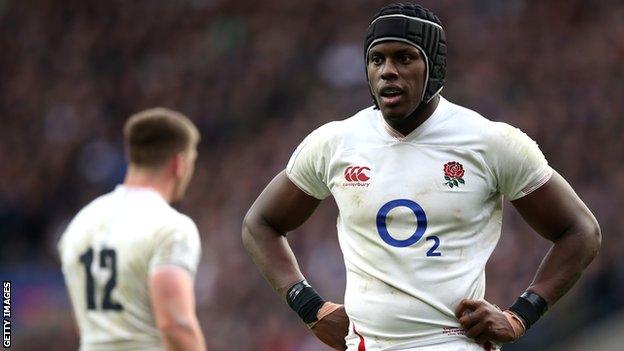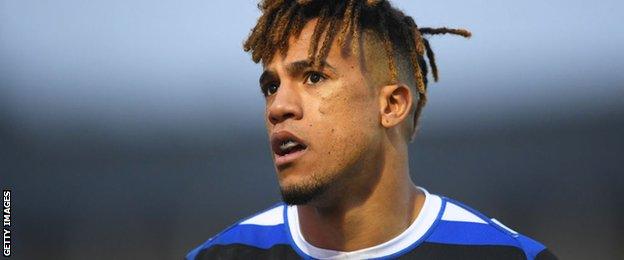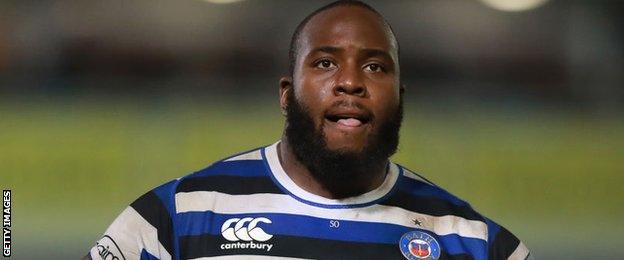Maro Itoje welcomes 'headphones-off' discussion on racial prejudice
- Published

Itoje only became interested in rugby at 11 and admits the game struggles to get traction among British-Nigerians
Rugby Union Weekly - Rugby and race |
|---|
BBC Radio 5 Live on Tuesday 9 June at 20:00 BST and as an extended podcast episode |
England's Maro Itoje says he hopes widespread protests after the death of George Floyd will spur society to confront longstanding prejudice.
The 25-year-old, who was born in London to Nigerian parents, was speaking on a special Rugby Union Weekly podcast.
"We are having a better, harsher look at the problem of racism," he said.
"When you are speaking to someone with headphones on, they can't hear you. It is only when they take them off that you can communicate with them."
Itoje said he had already seen conversations play out in his own social life.
"I am on a group chat with some of my schoolfriends, a mix of white and black people," he added.
"A lot of people involved come from a similar background to me, Nigerian or Nigerian-British. We were all talking about our personal experiences and one of our white friends said 'I can't believe you guys experienced this. I was in the same school and the same classroom and had no idea you had to face this.'"
Itoje, who earned a politics degree from the School of African and Oriental Studies in London in 2016, said such individual self-reflection was part of making a change.
"The first step is to be very self-reflective, acknowledge your bias and, once you have done that, actively do things to be fair," he added.
"We have all been socially conditioned from the day we left our mother's womb, whether it is by television, the books you read or what you consume socially and culturally.
"We just want society to fair and balanced, with equal opportunity for all."
'Kyle Eastmond pulled me up'

Anthony Watson's father Duncan played for Saracens, while his brother Marcus plays for Wasps
Itoje was joined on the podcast by fellow British and Irish Lion Anthony Watson.
Watson, who has an English father and a Nigerian mother, revealed that he had been caused to think more deeply about how he interacted with team-mates when former Bath colleague Kyle Eastmond took exception to a joke at training.
"When I think of myself, five, six years ago, I could have been better at understanding my roots and the effects of some of the things I said," he recalled.
"I told Kyle that it was banter to make someone laugh, but he explained how it was actually deeper than that.
"Kyle explained that I was making it OK for people to say similar stuff. For me to understand how I can be better at influencing the people around us is a way to make change."
'Talent is a currency'

Beno Obano's career suffered a setback with a serious knee injury at an England training camp
Bath prop Beno Obano is Itoje's paternal cousin and has been called into England squads in the past, without making his international debut.
He says that professional sportspeople's experience of racism is altered by their unique working environment and higher profile.
"There is always a factor that being a good rugby player, talent is a currency," he explained.
"People treat you a little bit differently because you are good at something.
"The issues you have are often things on a more cultural, day-to-day micro basis - the way you speak, the way you dress, the way your hair is perhaps - rather than a systemic issue."